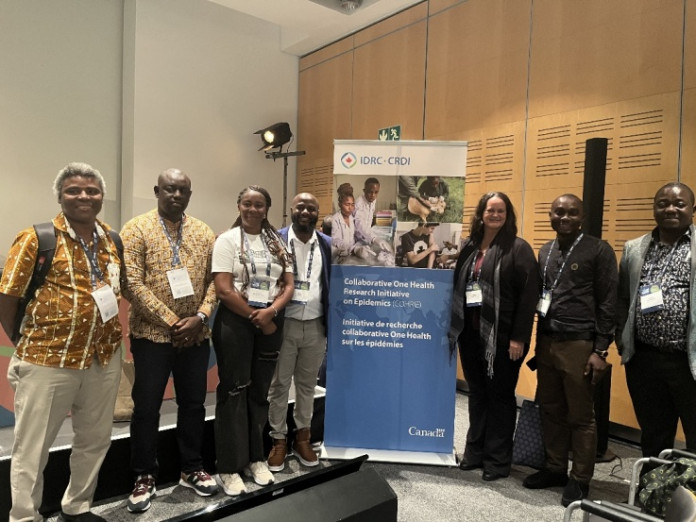By Esther Wright
Njala University, represented by Professor Rashid Ansumana, Principal Investigator of the West African One Health (WAOH)-Actions for Understanding, Preventing and Mitigating Outbreaks project, recently participated in the 8th World One Health Congress (WOHC) held in Cape Town, South Africa. The event, which ran from September 20th to 23rd, 2024, saw global stakeholders gather to address critical One Health challenges.
Accompanying Professor Ansumana were key consortium members, including Amber E. Martin, Project Coordinator and Monya Konneh, Socio-Ecologist. Together, they contributed to the diverse agenda of the four-day congress, which focused on the science-policy interface, antimicrobial agents and resistance, and advancements in One Health science.
The Congress attracted over 1,400 participants from 87 countries, featuring 400 speakers and 600 scientific poster presentations. Attendees included scientists, policymakers, representatives of international institutions, civil society and the private sector, all keen to discuss recent research and policy developments in the One Health sphere.
Professor Ansumana, along with three other Principal Investigators from the COHRIE team, contributed to a key panel discussion titled : “IDRC’s Collaborative One Health Research Initiative on Epidemics (COHRIE): How Countries in Africa and Latin America are Responding to Infectious Diseases Using Coordinated One Health Approaches.” This discussion highlighted the importance of coordinated, cross-sectoral strategies to combat infectious diseases in Africa and Latin America.
One of the standout moments for Njala University came through the presentation of two research abstract posters by Monya Konneh. The first, “Leveraging AI-Driven Text Network Analysis for Community-Based Pathogen Surveillance: Evaluating the Effectiveness of InfraNodus in Enhancing One Health Outcomes in West Africa (Poster 3152),” explored the integration of AI tools in pathogen surveillance. The second, “Equity in One Health Implementations: Examining Gender and Social Group Dynamics through Community Action Networks in Sierra Leone,” delved into the socio-ecological aspects of One Health, focusing on inclusive, gender-responsive approaches within Community Action Networks (CANs).
These presentations underscored the WAOH consortium’s innovative contributions to zoonotic disease surveillance in West Africa. By blending AI technology with grassroots community engagement, Njala University’s team demonstrated a robust model for detecting and addressing health risks at the local level. Their approach has been instrumental in enhancing public health outcomes and encouraging community involvement, especially in Sierra Leone, Liberia, Guinea and Nigeria.
The 8th World One Health Congress was a pivotal event, providing attendees with the opportunity to hear from world-renowned experts on global One Health science and policy. The outcomes of the congress will contribute to discussions at the 79th United Nations General Assembly in New York, where cross-sectoral and trans-disciplinary aspects of the One Health paradigm will be addressed.
Notably, this year’s Congress, held for the first time in Africa, offered a unique opportunity to examine One Health science and policy from an African perspective. Through an open call for abstracts, groundbreaking research from distinguished scientists and thought leaders was showcased, contributing to the advancement of the One Health agenda globally.
Organized by the Global One Health Community (GOHC), the Congress was a reflection of the growing international commitment to fostering collaboration across sectors to improve the health of people, animals, and their environments. Established in 2011 in Melbourne, Australia, GOHC continues to bridge the gap between science and policy, promoting a unified approach to addressing health challenges worldwide.




